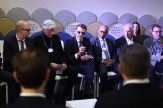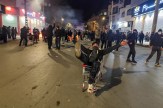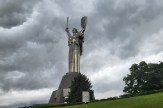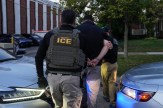Russian mercenary army’s march toward Moscow may have made Putin look weak, but Putin also showed power in the end, experts say
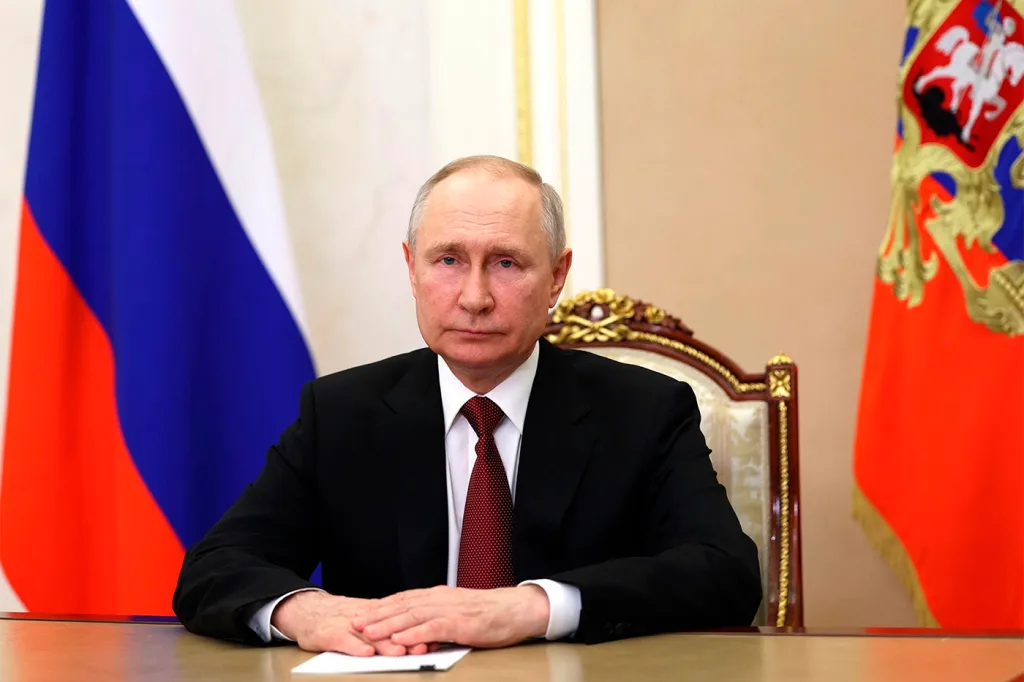
It looked like Russian President Vladimir Putin’s days might be numbered early Saturday, as a mercenary army turned its guns away from Ukraine and began marching to Moscow.
Then on Saturday afternoon, the mercenary Wagner Group stopped. Now its leader, Yevgeny V. Prigozhin, has agreed to go to Belarus and Putin has retained the presidency.
So, is Putin stronger Monday than he was on Friday?
Max Abrahms, Northeastern University professor of political science and public policy, says it’s difficult to say.
“The main takeaway for what I would call sort of anti-Russia pro-West propaganda that they want to leave us with is that this event symbolizes Putin’s weakness—they are not totally wrong with that,” Abrahms says on Monday. “Whenever an adversary, who is armed, controls thousands of mercenaries and is marching towards the capital, it’s not good for the leader of the country.”
“But also another way to look at it is that Putin was able to retain power, and he was able to do it quickly,” Abrahms continues. “And there was no real threat to his rule, and it was resolved with very little bloodshed on either side—I don’t think that can be seen as a huge weakness.
Jeffrey Burds, an associate professor of history who studies the international history of modern Russia, Ukraine, and the Soviet Union, meanwhile, was more explicit. Although he described Putin’s response to the march to Moscow as “comparatively lame,” Burds said the result was clear.
“Putin won. No question,” Burds says. “And I think it will lead to a renewed intensity of violence in Ukraine to underscore the point.”
Tensions rose on Friday night as Prigozhin, head of the private army called Wagner Group, which makes up a large portion of Russia’s forces fighting Ukraine, upped his criticism of Putin and his handling of the war in Ukraine—accusing the Russian military of attacking Wagner’s encampments.
The New York Times said the claim could not be immediately verified. Prigozhin also described the invasion of Ukraine as a “racket” to benefit a corrupt Russian elite.
He vowed that his 25,000-strong mercenary army would go on the offensive against the Russian defense ministry, although he said his actions were not a “military coup,” according to the New York Times.
Russian authorities responded by charging Prigozhin with “organizing an armed rebellion,” and Prigozhin claimed to have taken over the city of Rostov-on-Don in the south of Russia on his way to Moscow.
Putin won. No question. And I think it will lead to a renewed intensity of violence in Ukraine to underscore the point.
Jeffrey Burds, an associate professor of history at Northeastern University
In an address to the Russian people Saturday, Putin declared the actions “a stab in the back of our country and our people” and vowed “decisive actions.”
However, that afternoon Prigozhin said he halted the march on Moscow to “avoid shedding Russian blood.”
According to the Kremlin, President Alexsandr G. Lukashenko of Belarus negotiated Prigozhin’s agreement to halt his forces’ advances. Russia is dropping all “armed rebellion” charges against Prigozhin, who agreed to go to Belarus. Prigozhin’s Wagner fighters who did not take part in the rebellion will be given amnesty, and can then sign contracts that will bring them under the control of Russia’s Ministry of Defense. Those fighters who did take part in the convoy would not be prosecuted.
But there are many unanswered questions, Abrahms says.
“What did Putin have to give up to at least temporarily mollify the situation?” Abrahms asked. “We don’t know what he gave up, for example.”
Furthermore, Abrahms questioned what sort of threats—explicit or not—Putin had over Prigozhin, and what would happen to Prigozhin.
“What’s being reported is that Prigozhin has essentially agreed to be exiled to Belarus—but what will happen to him? Will he be killed—thrown out a window or poisoned?” Abrahms asks.
Burds had similar thoughts.
He saw similarities between Prigozhin and General Andrei Vlasov in World War II—one of Stalin’s generals who switched sides and led the anti-Stalinist Russian Liberation Army.
“Prigozhin’s warm greeting by the Russian people of Rostov reminded me very much of images I have seen of Vlasov among the Russian people back in 1943-1944—and the adoring stares from faces filled with hope,” Burds says. “Given Putin’s background (and the influence of his parents in Leningrad in World War II on his worldview) I can’t help but feel that Putin saw what I saw: the Russian people fear him, but they seem to adore Prigozhin.”
Thus, Burds says that he made two predictions to friends as soon as Wagner took Rostov: that Prigozhin would be dead within two weeks—although he says that may be delayed now because of the “agreement” (quotes original); and that Russia’s Federal Security Service (FSB) was rushing to take family and loved ones of Wagner soldiers into custody.
“That fact was confirmed 12-hours later, and I suspect this had a lot to do with the reversal,” Burds says. “Watch for the systematic assassinations of Prigozhin’s inner circle.”
Vlasov, it should be noted, was tried for treason and executed by the Soviets.
Moreover, what will happen to the Wagner Group army?
Abrahms noted that the army has been very helpful to Putin in Ukraine, but it also has an international presence in Africa, the Middle East and more. Will those activities continue?
Then finally, within Russia will this march to Moscow spur more internal unrest?
“There are many unanswered questions that are important,” Abrahms said. “The long-term effects on Putin’s hold are not entirely clear.”
Burds meanwhile, foresaw dangerous instability.
“Like a wounded wild animal, Putin is now more dangerous than ever,” Burds says.
He notes that Putin has demonstrated he is willing to wreak havoc with infrastructure by authorizing the destruction of the Kakhovka hydroelectric dam—“destroying the lives of thousands and generating shortages in the world food supply for years,” Burds says.
(Russia, which controlled the dam at the time, has blamed Ukraine for the destruction).
Burds wondered whether the Zaporizhzia nuclear power plant is next—as he says Ukrainian intelligence reported Monday that the facility has been mined by Russian troops.
“The Zaporizhzhia plant is the largest nuclear facility in Europe and fallout from its destruction could poison eastern Ukraine for centuries,” Burds says. “That is Putin’s trump card in any negotiations, while any concessions run against Ukrainian President Volodymyr Zelenskyy’s staunch insistence on not sacrificing a single meter of Ukrainian territory in eastern Ukraine or the Crimea. Someone has to persuade both leaders to make serious concessions towards peace.”
The legacy of the Wagner’s march on Moscow is to increase insecurity for all of us,” Burds concludes. “Things are likely to get worse before they get better.”
Cyrus Moulton is a Northeastern Global News reporter. Email him at c.moulton@northeastern.edu. Follow him on Twitter@MoultonCyrus.

